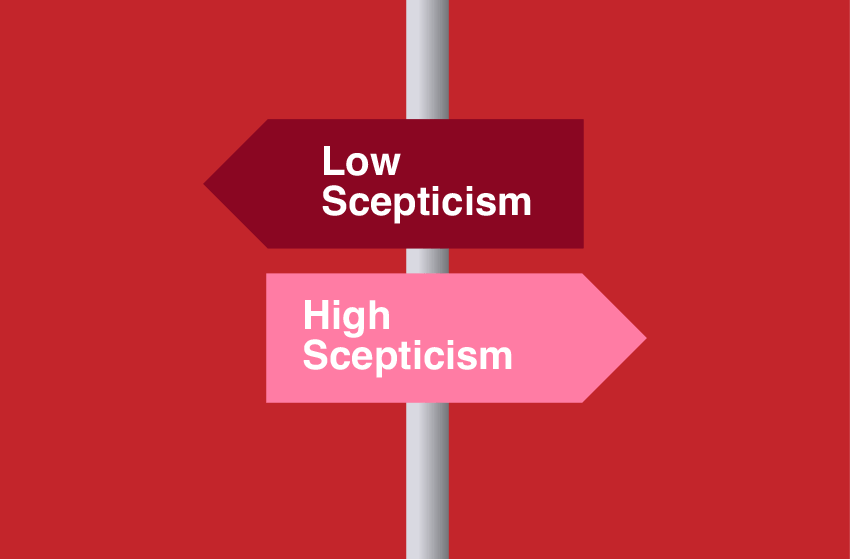The below article featured in Civil Service World Issue 316.
With a new survey showing that public sector leaders are more open to risk taking than previously thought, Gillian Hyde and Mark Powell discuss finding the balance between being challenging and receptive to new ideas.
As evidenced by Labour Chancellor, Hugh Dalton’s, famous retort: “You’re just a lot of congenital snag-hunters”, the Civil Service has long held a reputation of being the wary parent to the excitable minister. But does this stereotype still hold true? Dalton’s quote comes from the 1940s. Are public sector leaders still more sceptical than the rest of the population?
Despite Dalton’s remark – intended negatively – the stereotypical viewpoint of the public sector leader being overly cynical is, to many, a very positive trait and may help improve decision making quality.
As Sir Martin Donnelly – permanent secretary of the business department at the time – told the Institute for Government in 2014: “if Ministers are never challenged they are unlikely to be getting the best advice”. Sceptical personalities can offer insight into people and politics, and having someone around who is inclined to notice potential pitfalls in a particular policy provides a helpful balance to those over-promising under the scrutiny of the public eye.
But how true is Dalton’s comment when it comes to contemporary public sector leadership? And how does the revalence of the “snag-hunters” in the civil service compare with the population as a whole?
Data collected using the HDS psychometric tool (Hogan Development Survey), contrasted personality data from nearly 5,000 public sector leaders (between 2017 and 2020) to a UK norm group of working adults across various sectors, challenges this typecast, and found that the public sector leader was 74% less likely to be overly sceptical in comparison to the UK norm.
While there are many positives to this finding, such as leaders being more trusting and less fault finding, it is worth asking whether a leader can be too low in scepticism. If very low in scepticism, the individual may be perceived as being naïve, or perhaps not examining others’ true intentions carefully enough. It’s possible that their trusting and forgiving behaviour may leave them open to being exploited. This pattern of behaviour can have a gradual, cumulative effect on a leader’s reputation, with low scepticism negatively impacting their decision making.
Scepticism and decision making
The government’s 2021 Reform Plan set out the ambition for civil servants to be “creative and imaginative in problem-solving and policy formulation” as well as “rigorous in welcoming evaluation and scrutiny”. If one reads this in conjunction with an National Audit Office report from a few years earlier – which highlighted how civil servants are responsible for an increasingly complex range of projects – there’s clearly a delicate balance between scepticism to change and openness to change. Those disposed to have an elevated level of cynicism, particularly in higher-risk workplace decision making, may overplay this characteristic when under a lot of stress and pressure and become overly critical and mistrustful in their leadership style. This, in turn, may damage effect the team environment, potentially limiting creativity and imagination in problem solving as team members become wary of contributing. On the other hand, those who are too open and trusting in their leadership style don’t challenge or question enough, running the risk of missing potential issues, or of overlooking problems. Indeed, David Snowdon’s decision-making framework ‘Cynefin’ points to leaders oversimplifying contexts, being susceptible to entrained thinking and complacency resulting in potential catastrophic failure as the actual context is far more complex than they believe or perceive.
How can we support low scepticism as a strength, and manage any risk associated with this style within any industry?
To build on the strengths associated with low scepticism, individuals should be encouraged to remain open to seeing the positive in people, listening to others and establishing relationships based on trust.
To manage the risk, they need to check their natural tendency to assume the best of everyone and everything and start questioning more, probing more, looking below the surface, and imagining other possibilities from those presented to them. Snowdon puts it well, suggesting, “a leader must listen to the experts while simultaneously welcoming novel thoughts and solutions from others”, or in other words they need to demonstrate a level of healthy scepticism.
Mark Powell, Head of Leadership & Talent Consultancy, GatenbySanderson, and Gillian Hyde, Chartered Psychologist, Psychological Consultancy Ltd.
